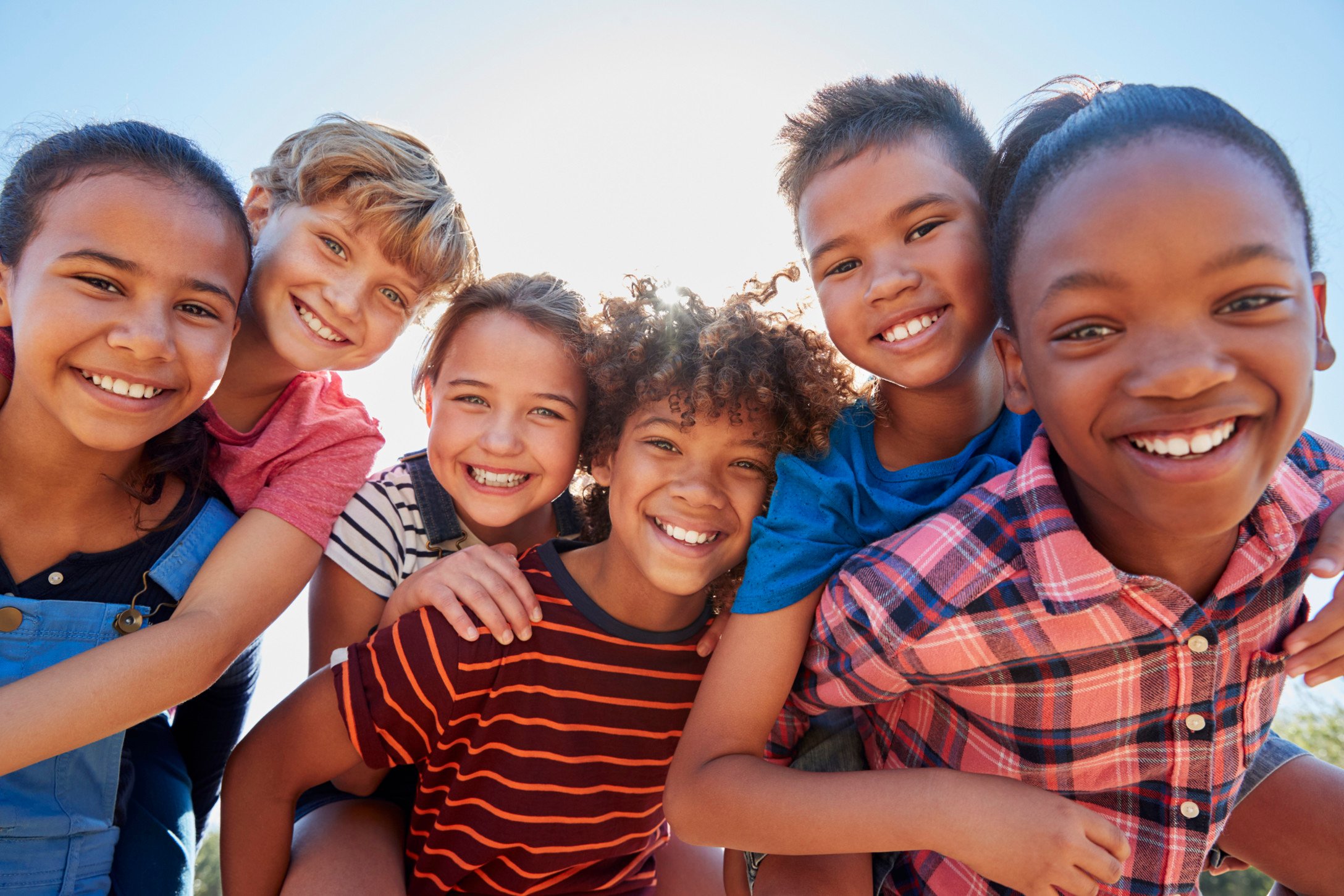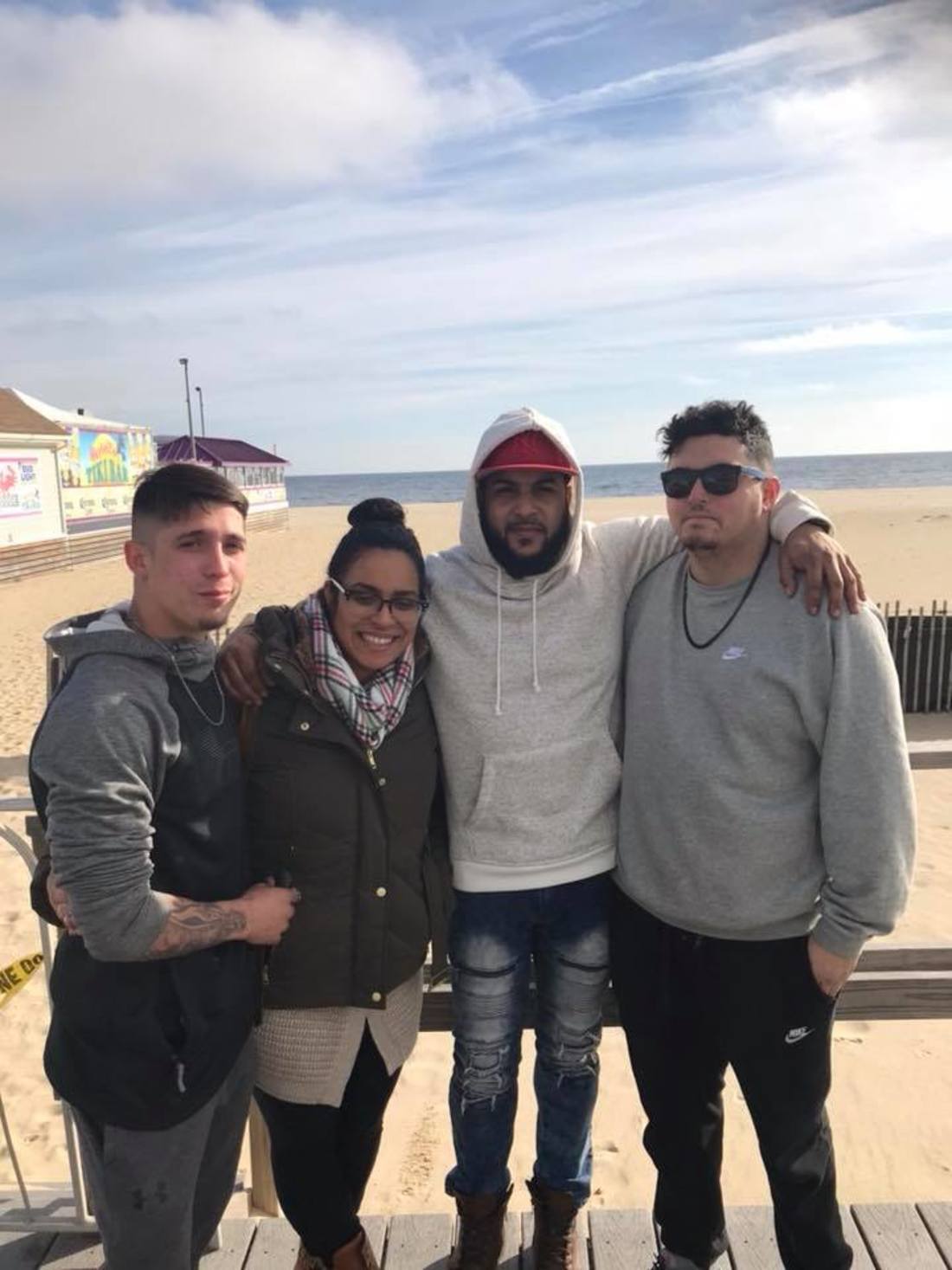
When I was a kid, my family looked like every family. Only… it didn't at all. Growing up in the '90s and aughts, I saw lots of families on TV sitcoms — there were white families, Black families, and even some Latino families just like mine on TV. There were also some blended families during that era of sitcoms. But my family looked like every family because it was all of those families.
Not only that, but by the time I was a teenager, my family was also an adoptive family, and I had siblings and cousins who had come out as queer. My exposure to all different types of families came from the inside, and it completely shaped what my definition of "family" is and has helped me to embrace all of the nontraditional families that are far more common today than they were even a decade ago.
My family looks like the United Nations
My grandmother, who was born in Puerto Rico and lived there until she was 12, has always said that our family looks like the United Nations. She and my grandfather — who was also from Puerto Rico — had three daughters together. They got divorced, and she remarried several years later.
Her second husband was a Black man from Mississippi, and when they married, they became a family of 10 — he had three sons and two daughters from his previous marriage.
My mom's dad remarried as well, and from that marriage I gained a half Dominican-American aunt. My mom married a fellow Puerto Rican (my dad), her older sister married a Black man, and her second youngest sister married a white man of Italian and Hungarian descent.
Add to that all of our extended family and various cousins from different parts of the family tree, and there was a wide spectrum of complexions, races, and ethnicities represented at every family function.
I never thought twice about it
I never knew any different. To me, my family was a regular family. We were all a part of one big unit. Me and all of my cousins — blood related or not — all played together, had sleepovers together, supported each other, and, of course, got into trouble together.
Our experiences outside of our big, blended extended family sometimes looked different from each other's, but that was all forgotten when we were together. It wasn't until I was a teenager that I realized our family wasn't average.
Along the way, I gained three brothers

Sometime during my middle school years, my mom became a foster parent, and when I was in high school, she adopted three boys (two pictured above). Our family grew, and so did my heart. I've never seen them differently than my biological brothers, and even when I explain to someone that they are adopted — or write it here — it feels like an uncomfortable distinction. My family is just my family.
Somewhere along the way, both of my biological brothers also came out as queer, and the face of our family shifted once again. Everything felt the same to me, but I was at an age where I knew that meant others would look at us differently.
Then, during the second half of my teen years, my perception of us being a regular family was cracked wide open when I moved from the northeastern United States to the Deep South. There were no families that looked like my family. We were different, and people looked at us like we were different and talked to us like we were different — and that was without even knowing any of the extended family! Slowly, I began to realize that my experience with a blended, adoptive, queer-inclusive family was quite different from that of the average American family.
And,we just kept growing more different
In my early adulthood, I became the older sister to two much younger half-brothers on my dad's side. Again, my heart grew. Again, I had more to explain to anyone who enquired. Sometimes it was awkward, sometimes it was tiresome, sometimes I just… didn't.
Perhaps, inevitably, I fell in love with and married a biracial man and we made two incredible multiracial, multicultural children. Now I know: My family has always been unique. We've always looked different— and we always will — and I can say with 100% certainty that I'm a better person because of it.
My definition of family is broad
Because I grew up surrounded by non-traditional family units, within a non-traditional family unit, I've never hesitated to accept any family in any iteration. To me, family is something you make, not just something you are born into. The only things that should truly define family are love and support. I'm beyond thankful for those that came before me, the ones who sacrificed comfort and acceptance to put love and their own truths ahead of anything else. Those people made it possible for me to love fully and for me to accept everyone else who does too.
Adoption, surrogacy, IVF… biracial, multiracial… gay, straight, and transgender families are all beautiful and special, and yes, unique in the best way possible.
When I see families that are "different" fighting for their rights, it confounds me, and frankly, it pains me. There was a time when my family wouldn't have been allowed, a time when they were looked down upon. Perhaps, we still are.
But one thing I will tell you: I will never judge, persecute, diminish, or condemn any loving family, and my children won't either.



